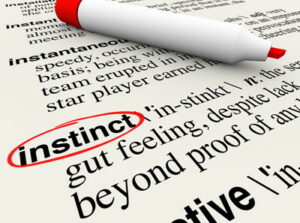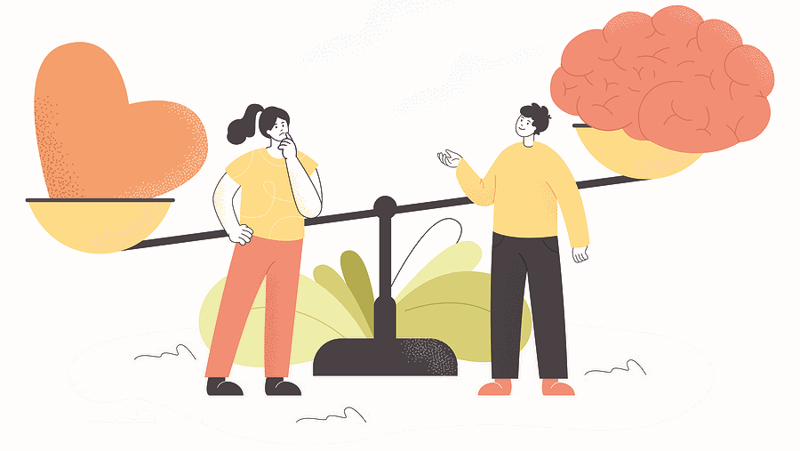 The best bettors in the world are the ones that know the true odds of every decision that they make. Whether they’re sitting down in a casino or are looking at placing a wager on a horse race, they will have done a huge amount of research in order to make sure that the bets that they’re placing have good value.
The best bettors in the world are the ones that know the true odds of every decision that they make. Whether they’re sitting down in a casino or are looking at placing a wager on a horse race, they will have done a huge amount of research in order to make sure that the bets that they’re placing have good value.
Though there will always be huge amounts of luck and variance involved in the world of betting, the top punters take as much of that out of the equation as they’re able to, placing bets that are as sensible as possible.
One of the things that top punters will never do is place a bet according to a ‘gut feeling’. This sense that something is going to happen is, for want of a better phrase, absolute nonsense. Of course there is a chance that your gut feeling will pay off every now and then, but over the long run bookmakers and casino operators depend on people that ‘follow their gut’ as they know that this will see them take money off them the more often that it happens. Psychologically, however, people often make the mistake of ‘trusting their gut’.
What It Means To Trust Your Gut

Different people will talk about this way of betting in different ways. For some, it is about ‘following their intuition’. For others, it is all about a feeling that they have that an event will work out one way or another. Regardless, the idea is that you ignore any research or data and instead just place a bet based on nothing other than what your sensing is the right bet to place at the time. Malcolm Gladwell wrote about it in detail in his book Blink: The Power of Thinking Without Thinking, talking of the intuitive, unconscious decision making.
Essentially, it is what you decide to do when you’re not basing your decision on facts or research. Imagine that you’re sat in a casino playing blackjack, for example. Basic Strategy is the best way to play if you want to keep the House Edge as low as possible, so you should follow the rules of BS regardless of the hand that you have in front of you. Having seen that the dealer has been dealt a 10, however, you decide to follow your instinct and fold your cards. BS plays out as it should and you would have won. This is why following your gut doesn’t always work.
Do All Scientists Agree?
 The interesting thing about the notion of following your gut is that not all scientists agree that it is the right thing to do. In an article in the New Scientist, the argument is put forward that actually following your gut is the right thing to do when betting in person. The analogy of sitting at the blackjack table was used again, with the suggestion being that your gut instinct is actually your brain picking up on any number of different subliminal signals such as a dealer’s tell, which actually mean that ignoring it might end up costing you.
The interesting thing about the notion of following your gut is that not all scientists agree that it is the right thing to do. In an article in the New Scientist, the argument is put forward that actually following your gut is the right thing to do when betting in person. The analogy of sitting at the blackjack table was used again, with the suggestion being that your gut instinct is actually your brain picking up on any number of different subliminal signals such as a dealer’s tell, which actually mean that ignoring it might end up costing you.
Mathias Pessiglione, a neuroscientist at Paris’ Centre for Neuroimaging Research, said,
“When you think that you are referring to your intuition, actually you just learn an association between subliminal signals in your context and the outcome of your actions.”
The statement was based on research that they had carried out, trying to prove that the brain can actually learn subconsciously. In order to discover whether that was the case or not, they worked with 20 volunteers and engaged them in a simple game with small amounts of money.
Volunteers were given three seconds to decide whether to take the bet offered or not, with the instruction that they should ‘follow their gut’. What they didn’t know is that they’d watched a graphic that flashed up to them whether or not the bet would be a winner.
They got better at predicting whether they’d win over time, plateauing at an ‘above chance’ rate. When they underwent an MRI, it showed that the decisions were based on sub-conscious choices that were made using a part of the brain that is involved in conscious risk-taking.
Is The ‘Hunch’ A Good Thing, Then?
 Whilst following your gut might work in situations where you can indeed learn some things unconsciously, such as by noticing a dealer’s tell, that actually wouldn’t be the case the majority of the time. If you’re betting on a football match, for example, there is no way to know what the result of the game is going to be ahead of time, no matter how much you study the players and managers involved and their body language. Equally, information about a horse race can’t really be gleaned from looking at the horse in the Parade Ring alone.
Whilst following your gut might work in situations where you can indeed learn some things unconsciously, such as by noticing a dealer’s tell, that actually wouldn’t be the case the majority of the time. If you’re betting on a football match, for example, there is no way to know what the result of the game is going to be ahead of time, no matter how much you study the players and managers involved and their body language. Equally, information about a horse race can’t really be gleaned from looking at the horse in the Parade Ring alone.
The important thing to realise about following your intuition is that it might well work on a few occasions. The reality is that you’re effectively guessing based on no evidence, but in a lot of cases you’ll be guessing about something that is 50/50.
The result of a tennis match is going to be one thing or the other, for example, so your ‘hunch’ might prove to be right on something that is no more or less likely than the flip of a coin, literally speaking. The problem is when we start to think that our ‘gut’ has some sort of mystical power.
Over the long-term, bookmakers and casinos will win more money from you than you get from them. They are deliberately set up for that to be the case. The only way to have even the slightest chance of tilting the odds in your favour is by studying and doing your research.
If you spend an hour looking at the form of two football teams, investigating the injury news and tracking social media talk about them, finding out if there’s been any trouble in training and so on, you’re more likely to make the right bet than if you simply trust your gut.
